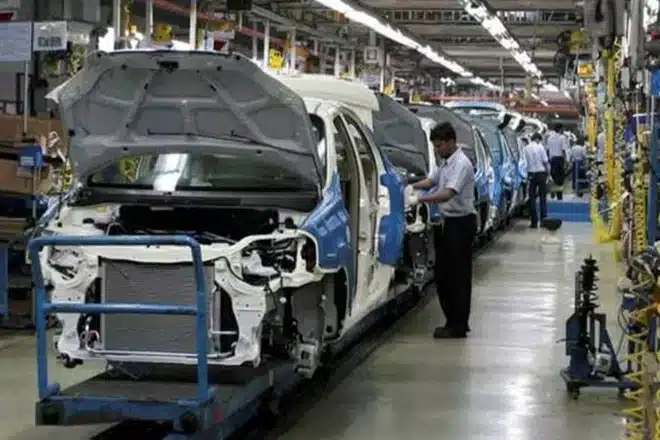In recent months, Pakistan’s automotive industry has been facing significant challenges, leading to the layoff of thousands of employees. The industry has been heavily affected by a decline in vehicle and spare parts sales, primarily due to a government ban on the import of raw materials. This, coupled with the depreciation of the Pakistani rupee and high inflation, has created an economic crisis for the country.
Pakistan’s central bank has seen a sharp decline in foreign exchange reserves, which now only cover about three weeks of imports. The national currency has also reached historic lows against the US dollar. To prevent the outflow of US dollars, the government imposed restrictions on the import of raw materials last year. As a result, industrial output has decreased significantly, leading to layoffs and unemployment.
The inflation rate in Pakistan has soared to 36.4 percent in April, the highest since 1964. With production coming to a halt, automotive manufacturers have shut down their plants, resulting in a lack of buyers. Auto parts manufacturers are facing additional challenges, such as demurrage charges for raw materials stuck at the Karachi port.
The Pakistan Association of Automotive Parts and Accessories Manufacturers (PAAPAM), which supplies around 90 percent of local vehicle parts, has been severely affected. They are struggling to repay bank loans and facing devaluation of their materials. The chairman of PAAPAM expressed concerns about the industry’s future, stating that it is unlikely to revive in the coming years.
The automobile industry in Pakistan is import-dependent and requires a significant amount of US dollars. The coordinator to the Prime Minister on commerce and industry stated that the industry cannot run at full efficiency until the revival of the IMF bailout program. An agreement on the IMF bailout deal signed in 2019 has been delayed since November, affecting the country’s ability to protect its foreign exchange reserves.
The government acknowledges the decline in sales and mass layoffs as unfortunate and claims to be working tirelessly to revive the economy. However, they stress the need to protect foreign exchange reserves by restricting the import of raw materials for the industry. The coordinator believes that once reserves build up, there will be a boom in the auto industry again.
As a result of these challenges, vehicle sales have declined by approximately 70 percent in one year, and some manufacturing plants have remained shut for several months.


